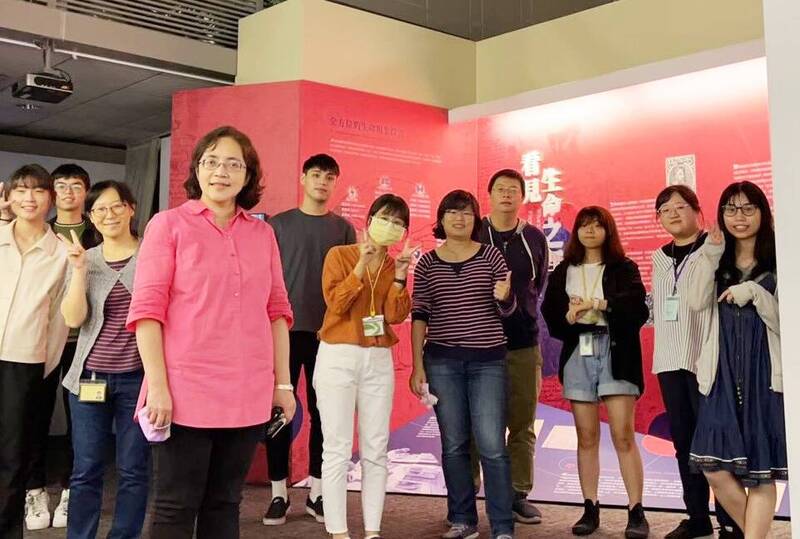Li Yixuan, a professor at the Institute of Physiology of Yangming Jiaotong University, who led the research, and her team.
(Provided by Yangming Jiaotong University)
[Reporter Lin Xiaoyun/Taipei report] Wuhan pneumonia (new coronavirus disease, COVID-19) has a solution to the anxiety of the new crown?
National Yangming Jiaotong University and Taipei City Union Medical College jointly revealed that the anti-anxiety molecular mechanism of the brain after recovery from inflammation, the latest animal model shows that the Fkbp5 gene may be the cause. The team's experiments confirmed that the Fkbp5 gene can regulate the anxiety caused by inflammation in the body. The research provides a new theoretical basis for the diagnosis and treatment of mood disorders after recovery from inflammation-related diseases. The results were published in the Journal of Neuroinflammation.
A research team composed of the Institute of Physiology of Yangming Jiaotong University and the Department of Psychiatry of Beijing Union Medical College Songde District found that the "Fkbp5 gene" knockout mice, in the early stage of recovery after the body's inflammatory response, although the symptoms of illness have been relieved, they still have symptoms. Showed anxiety-like behavior, but normal wild-type mice did not have anxiety behavior after recovery.
Please read on...
The team explained that the Fkbp5 gene is a downstream gene after the activation of stress hormone receptors, which can regulate the activity of stress hormone receptors and play an important role in the causes of mental disorders. The endocrine system, the feedback control of the hypothalamic-pituitary-adrenal axis (HPA), is also involved in the immune response.
One of the principal investigators, Dr. Huang Mingqi from the Department of Psychiatry of the Songde Campus of Beijing Union Medical College, said that in the past, it has been confirmed that there are more GABA nerve conduction in the "ventral hippocampal neurons", which can help fight anxiety, but it is not caused by inflammation. Anxiety has no such effect; cytokines caused by infection with new coronary pneumonia are one of the reasons for the inflammatory response. Although the Fkbp5 gene and the anxiety caused by the new crown still need to be clarified, research has initially revealed the molecular mechanism of the Fkbp5 gene in inflammation-induced anxiety .
Li Yixuan, a professor at the Institute of Physiology of Yangming Jiaotong University, who led the study, said that inflammation activates the HPA axis, overexpresses the Fkbp51 protein transcribed by the Fkbp5 gene, and initiates a series of downstream molecular mechanisms, including relatively high levels of neurons in the ventral hippocampus. More GABA synthase-GAD65 is used to inhibit neural activity. In this case, emotions will be more stable. However, once the Fkbp gene is deleted, this molecular pathway cannot play a normal role in stabilizing emotions, resulting in anxiety.
The participating members of this study also include Dr. Gan Yuling, Master He Rongheng, Wang Zhenyu, postdoctoral researcher from the Institute of Physiology of Yangming Jiaotong University, and Mr. Ye Xinxian from the Brain Research Center, Mr. Zheng Qiongjuan from the Institute of Anatomy, and Mr. Lin Huijing from the Institute of Physiology.
